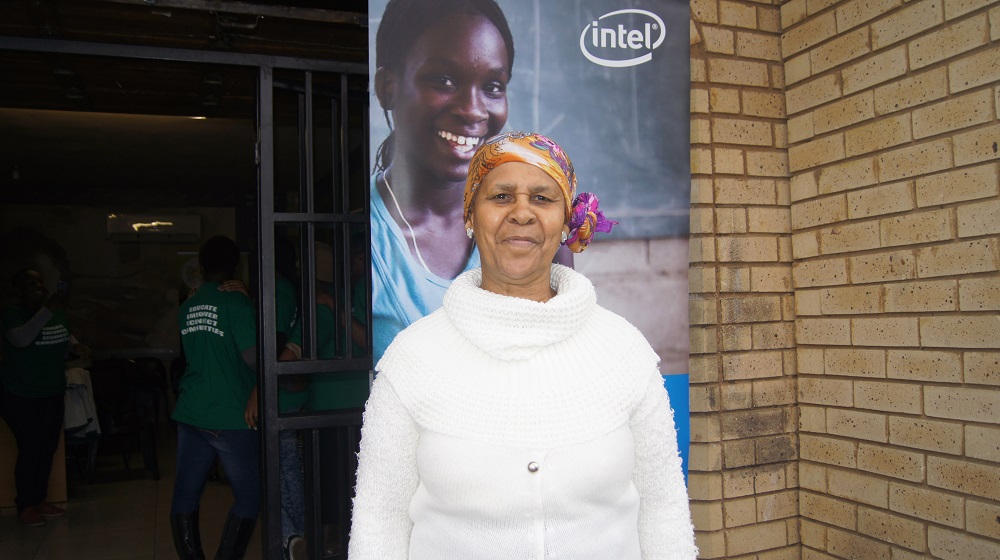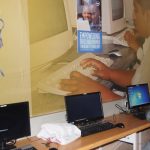A few months ago, Mama Thenjiwe Tshabalala knew next to nothing about computers. Now, in a reversal of the common stereotype where “digital natives” teach their elders how to access the internet, the 64-year-old is planning to return to her home village from Alexandra township in Johannesburg and start teaching digital literacy skills to those much younger than she is.
“I decided I wanted to learn how to use a computer because I wanted to use the skills to start a youth development non-profit organisation back in my village in the Eastern Cape,” Mama Tshabalala says. “The organisation will help equip youth with skills and get them use those skills to find employment and to teach young and old community members around them”.

“I want to help bridge the generational gap between youths and elderly people,” continues Tshabalala, “The young people back home don’t get exposed to technology as much as those in the urban areas and they end up turning to pregnancy and substance abuse to keep them occupied. Once I’m done with the entire computer program, I want to take these skills back home to teach others, conduct workshops and run the organisation’s day-to-day activities.”
Tshabalala’s rapid skills development happened at the Alexandra Development Centre (ADC), which partners with the Siyafunda Community Technology Centre network and Intel’s She Will Connect program to train women in computer skills and address the online gender gap in sub-Saharan Africa. By addressing women directly, the program aims to increase the number of females working in IT-related subjects, as well as teach basic computer literacy to thousands.
Intel and Siyafunda teamed up in 2012, combining their strengths in tackling the development of ICT skills within communities where people had very little chance of accessing to training.
The Alexandra Siyafunda centre was struggling to conduct projects successfully because of a lack of resources, which prompted it to approach Intel over a year ago to help set up a working system that they could implement.
Two Siyafunda centres have already completed She Will Connect, while the Alex branch will be among the 80 centres, of which 50 are managed by women, beginning their’s this month. The partnership is providing digital literacy to 5 000 women and aims to reach 200 more women at Siyafunda Alexandra alone during Youth Month.
Upon completion, participants receive a monetary incentive and a certificate.
“Our social responsibility programs have always focused on education and communities,” says Christian Morales, Intel’s vice president and general manager of the Europe, Middle East, Africa regions. “We are very grateful to have organisations like Siyafunda working in communities to introduce digital skills.”

“We empower women who are exposed to these programs to set up their own enterprises and help their own communities, this has been the most rewarding feedback we’ve received so far,” he adds.
Not even challenges such as load-shedding, a sometimes unstable internet connection and a recent break-in have been able to stop the women, who range from teens to pensioners from learning all they can in hopes of improve their quality of life.
Thirty-five-year-old Zama Khumalo arrived at the centre, already with a formal qualification and computer knowledge in-hand, but believes if she can learn more about computer technology and have access to the internet, she will be able to secure employment and provide for her family.

“Looking for a job is hard when you don’t have access to internet and a computer,” Khumalo says. “I’m really looking forward to starting the program and bettering my skills for potential jobs.”
After completing the program, Mama Tshabalala will head straight back to her village and get started on her non-profit organisation. “I want to dig up talented youth who will help love our community forward. I hope the change it makes will have a ripple effect and help inspire people living in rural areas,” she says.



